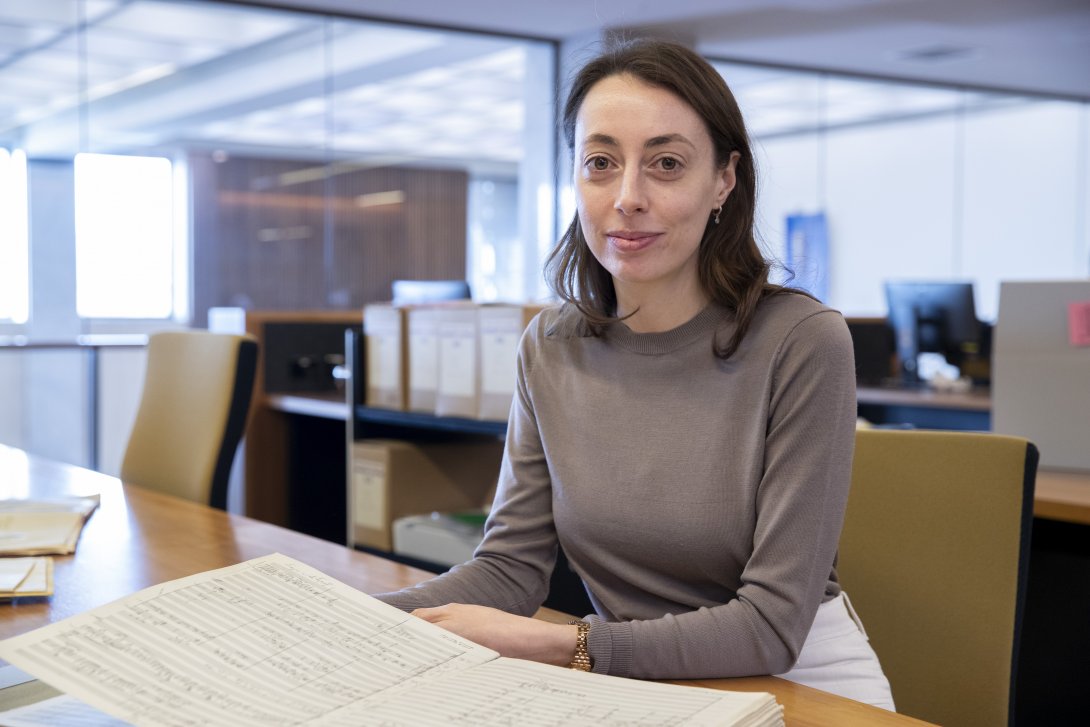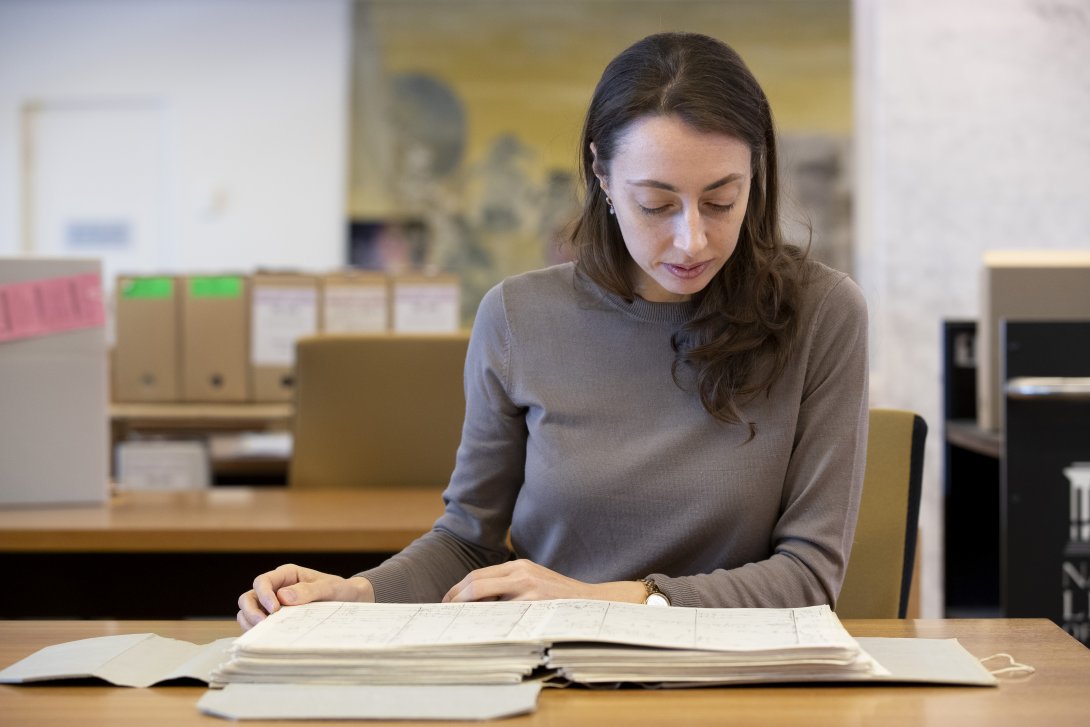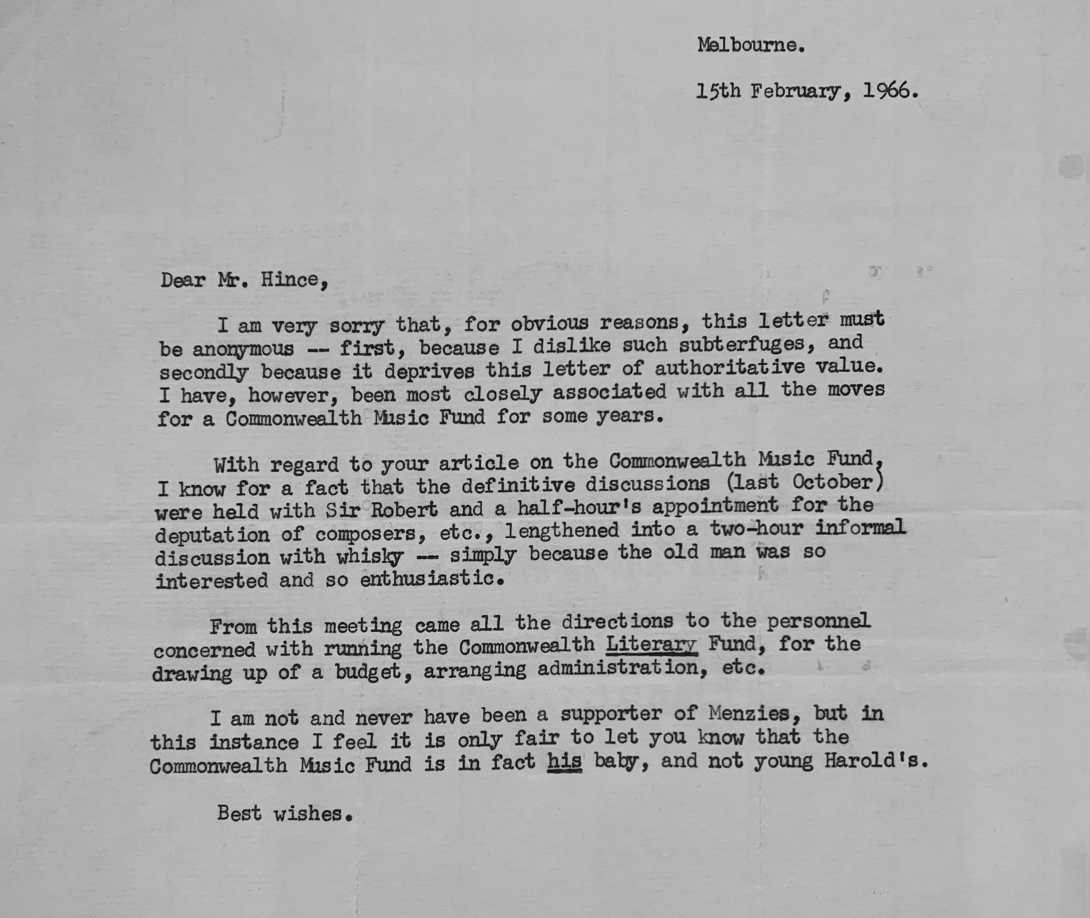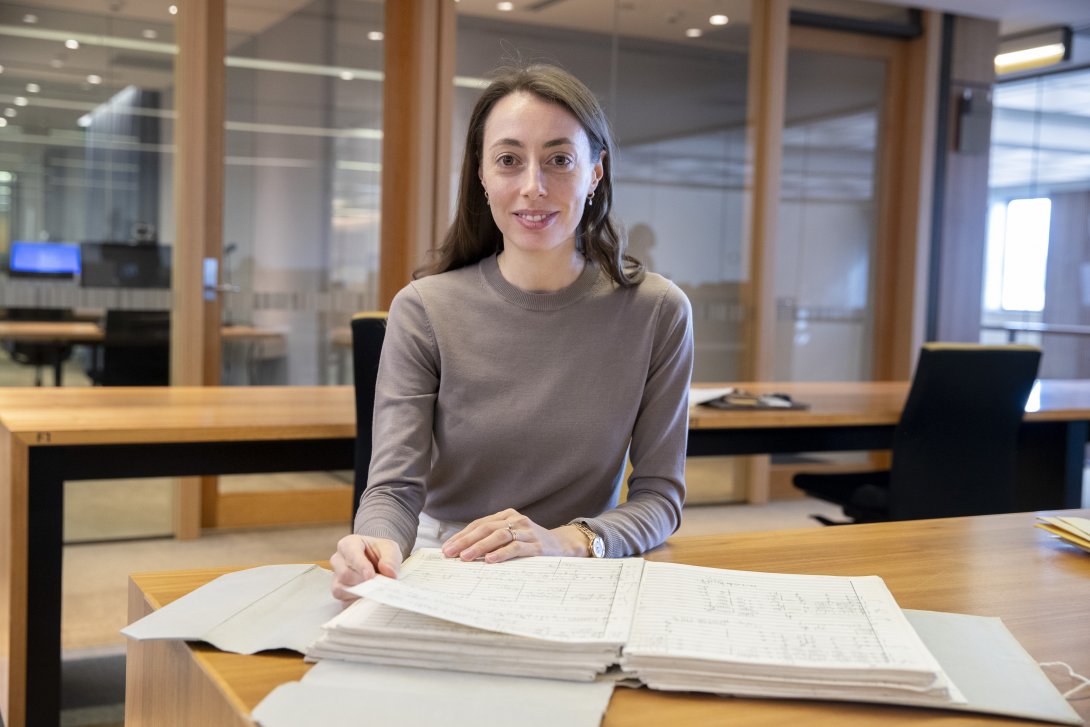A long way from the University of Oxford, where she is a Doctor of Philosophy candidate in Music, 2023 NLA Scholar Mrs Stephanie Shon used the Library’s collection to explore the cultural politics of Australian art-music composition in the 1960s to 70s. As she did so, she uncovered fiercely political grudges between composers, the truth behind decades-old myths and more.

Titled Writing About Australian Music: Discursive Mediations of Taste and Aesthetics 1960s–1970s, Shephanie’s research took her deep into the Library’s collection. Specifically, she set out to explore ‘the cultural politics of Australian art music, what’s usually known as “classical”, composition after 1960’ she explained.
Her research further focused on ‘how the relationship between composition and cultural policy has shaped, and continues to shape, the production, distribution, and reception of Australian music’.
‘Rather than examine policy and artistic creation separately, I wanted to analyse these things symbiotically.’
From the top
This connection between ‘locally-produced culture’ and society is a long-held interest of Stephanie’s, stemming from when she first began learning the flute as a child.
‘There is a very pervasive narrative that exists in cultural circles about Australia being an “uncultured” society and that the arts, especially that created in Australia by Australians, have suffered accordingly. Whilst there is sometimes a tiny grain of truth to that rather harsh statement, I was interested to know how this idea emerged and why it is so pervasive.’
‘A research oasis’
It is very fair to say that the Library struck the right note with Stephanie. As a regular Library visitor, having made trips into the Special Collections Reading Room numerous times, Stephanie knew that the Library may just be the key to unlocking some of the answers behind her research questions.
‘The NLA is custodian to the manuscript collections of a vast array of Australian composers, music critics, and arts administrators. Some of these figures are collectively responsible for shaping the art music scene in Australia as we know it today … I needed to access this archival material to gather data for my research.’
Stephanie also noted that the Library ‘happens to be a very nice place to work, so that certainly contributed to the allure!’

Changing his tune
The collection certainly didn’t disappoint, and she soon uncovered all sorts of material for analysis. Among these was a direct contradiction of one of the many ‘myths circulating about the origin story of arts funding in Australia’.
‘The “official” narrative is that Robert Menzies was staunchly opposed to instituting federal arts subsidies during his Prime Ministership. In one of the manuscript collections, I found a letter from a writer who vehemently wished to remain anonymous but who nonetheless needed to relieve themselves of the secret that after a two-hour, whisky-fueled discussion Menzies came around to the idea of federal arts subsidies, and that the Commonwealth Music Fund was, in fact, “his baby”.’
Another ‘shocking’ surprise encountered in her research was ‘the petty, vindictive way that some quite well-known composers treated their peers, colleagues, and friends in private'.

What’s next for Stephanie?
Now that the curtains have closed on her scholarship, Stephanie will spend the next year or so analysing her findings.
‘Hopefully through digesting and processing this information, I can compose my doctoral thesis. I also plan to present some of my findings at academic conferences across Europe. It is always interesting to hear international perspectives on Australian subjects.’

Not to toot our own horn but...
When asked about whether she would recommend the National Library of Australia Scholarships program to others, Stephanie asked ‘Who wouldn’t want to spend weeks of uninterrupted time immersed in the NLA’s collection?’
‘The NLA scholarship is an unparalleled opportunity to work intensively with (often) unique material and sources … with the added benefit of a whole team of librarians and other experts guiding and assisting you every step of the way!’